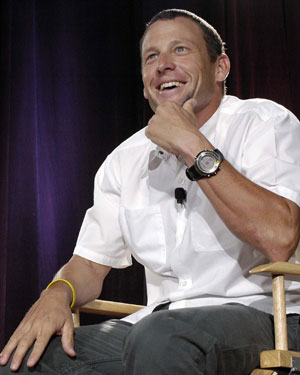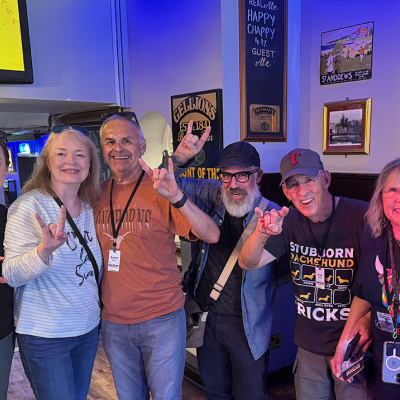Did Lance Armstrong Ever Dope? An Expert Weighs In At UT

A visiting Danish scholar and doping expert admitted Friday that he was a bit nervous to speak about Lance Armstrong in Austin, where the cyclist is perhaps the city's favorite son.
In the sport that started the moral panic around using performance-enhancing drugs, the seven-time Tour de France winner has never failed a drug test. Still, over the course of a long and dominant career, there has been no shortage of talk. Recently, it's even intensified.
Verne Moeller, a sport science professor at Aarhus University, said cycling's testing system may not be efficient enough to have caught Armstrong if he had doped.
But whether he did or didn't, Moeller said, doesn't diminish his achievements when other riders did — and he still beat them. "No matter what the truth is about Lance Armstrong," Moeller said, "I think it is safe to say what he has accomplished as a rider merits the admiration he has received."
Moeller is the author of Elite Sport, Doping, and Drug Policy and The Doping Devil. He spoke in Bellmont Hall as part of UT's McCraw Lecture series.
The review Moeller gave of cyclists who had been caught doping — Jesus Marzano, Jörg Jacksche, Bernhard Kohl, and Floyd Landis among them — was eyebrow-raising. All said doping was routine in their sport.
"Either you dope or you are ousted," Marzano said in 2003.
"I was tested 200 times during my career," Kohl said in 2008. "One hundred times I was doped, so I couldn't believe it when I got caught."
The head of the International Cycling Union, which regulates the sport, said those riders weren't to be trusted.
But this good guys vs. bad guys narrative put out by the media has not been helpful, Moeller said. "I think we need to go beyond the idea of heroes and villains, good and bad athletes, to see where the real fault lies" — in the management of the sport. The all-or-nothing concept of using performance-enhancing drugs hasn't kept up with modern times.
Substances like EPO and human growth hormone do have profound effects on muscles and endurance, Moeller pointed out. To level the playing field, he suggested thinking about thresholds. That way, athletes could have testosterone to a certain level, hermaphorone to a certain level, and so on. "Science is both good and bad," he said. "It's not an ideal solution, but perhaps the best."
Lance Armstrong. Photo from UT Public Affairs.





